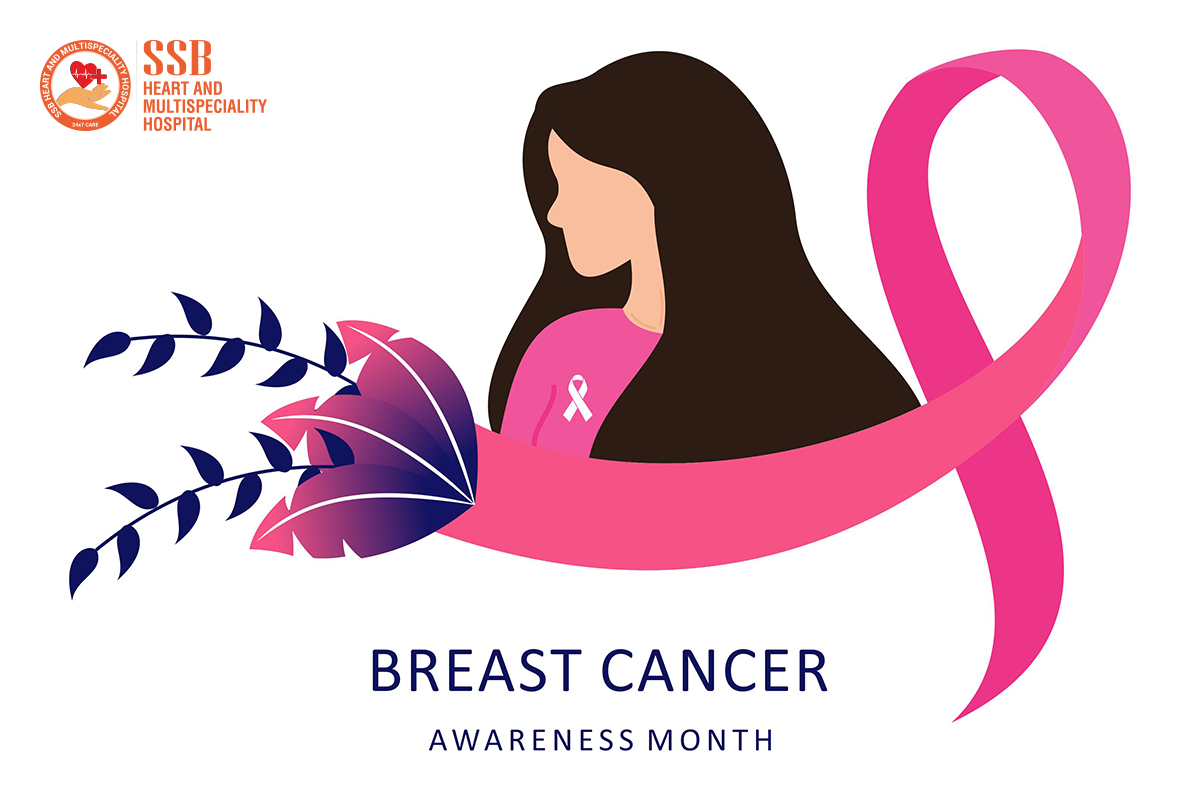 October 18, 2022
October 18, 2022
Although breast cancer is among the most common cancers among women, we rarely discuss the topic of breast health in our homes or communities. And a sudden breast cancer diagnosis can leave anyone with many unanswered questions about the treatment and follow-up.
Firstly, options for treating breast cancer depend on many factors, such as the type and stage of the disease. And after you're done with cancer treatment, you'll need to see a doctor regularly for follow-up care because regular checkups help detect changes in your overall health caused by cancer treatment.
Here are the answers to some of the most frequently asked questions on treating breast cancer and follow-up care. Let’s get started.
I have been recently diagnosed with breast cancer. What kinds of treatment options are available?
The main goals of breast cancer treatments are to kill as many cancer cells as possible, prevent the spread of cancer cells and stop cancer from coming back.
Some treatments eliminate or kill cancer in the breast and nearby tissues, like lymph nodes. Among these treatments are:
There are two types of surgery
Mastectomy: This procedure removes the whole breast.
Lumpectomy, or breast-conserving surgery: This procedure removes only the tumor and the tissues around it and not the entire breast
In addition, women who need surgery may choose breast reconstruction surgery to change how their breasts look and feel.
Other treatments try to kill or control all cancer cells in the body. These include:
Your doctor will guide you in deciding the most suitable treatment method for you, and you may choose a combination of therapies.
What possible side effects could each treatment have?
Breast cancer treatments can cause short-term side effects that disappear soon after treatment and long-term side effects that can last for months or even years.
Here is a list of the possible side effects of each treatment.
Surgery:
Radiation therapy:
Chemotherapy:
Some of the side effects of chemotherapy drugs include:
Hormone therapy:
Some hormone therapies for breast cancer can cause a wide range of side effects, such as:
Targeted therapy: Side effects from targeted therapy drugs are usually mild but can occasionally cause nausea, vomiting, diarrhea, fatigue, mouth sores, and rashes.
How can I deal with the side effects of my treatment?
Some therapies may help to pump up your strength and energy so that you can continue your treatment plans in the best possible way. Therefore, supportive therapies like therapy, counseling, nutrition therapy, pain management, and oncology rehabilitation may lessen the side effects of breast cancer treatment.
How quickly do I need to decide how to treat my breast cancer?
Most of the time, treatment for breast cancer starts soon after diagnosis. However, what’s more, important than beginning treatment is to understand and weigh all your treatment options with your doctor and then choose what's best for you.
What if I do not want treatment for my cancer?
There are also risks when you decide not to get treatment. Patients with breast cancer can say no to their doctors' treatment plans. In the meantime, palliative care can control severe side effects like pain, nausea, and other symptoms and help you manage the quality of your life.
Will my treatment for breast cancer make it harder for me to have a baby?
Women in their childbearing years with breast cancer often worry about how treatment may affect their ability to conceive a child in the future.
Before you begin treatment, you should talk to your oncologist about your fertility concerns, as they will guide you on what kind of treatment is the best for you-
Chemotherapy may change how the ovaries work and lower the number or quality of eggs. However, the likelihood of not being able to have children after chemotherapy may depend on the type of drugs used, the amount is given, and your age.
Radiation can cause temporary or permanent infertility, especially if the radiation is given directly to the pelvic region.
Follow-up Care
What Happens When I'm Done with My Cancer Treatment?
After treatment for breast cancer, you'll need regular checkups. Checkups help uncover health concerns like recurrence or side effects of cancer treatment and assess overall health. Between checkups, you should call your doctor if you have any new health concerns.
What symptoms should I report to my doctor during the breast cancer follow-up period?
You should contact your doctor immediately if you see any changes in the area that has been treated or in the other breast or if you've been experiencing any strange sensations or discomforts that have persisted for more than three weeks.
What goes on at follow-up appointments for breast cancer?
The doctor will inquire as to your state of health. Your neck, underarms, chest, and breasts will most likely be examined at checkups.
Cancer in one breast may increase the risk of developing cancer in the other breast, so tests and examinations of that may be done.
You may also need to undergo further imaging exams or laboratory examinations per your doctor's instructions.
During follow-up sessions, the doctor may also discuss the likelihood of a local recurrence within the breast tissue or a distant recurrence in another organ.
I am concerned about recurrence. What should I do?
The possibility of a recurrence of breast cancer is frightening. Your concern is natural, but don't let the fear of recurrence overpower you.
If you experience any symptoms related to Breast Cancer, don't delay consulting your doctor. Receiving the proper medical treatment and care is the only way to steer clear of any related medical complications.
To book an appointment, contact us at +91-9540 114 114.
2025 © SSB Heart and Multispecialty Hospital.